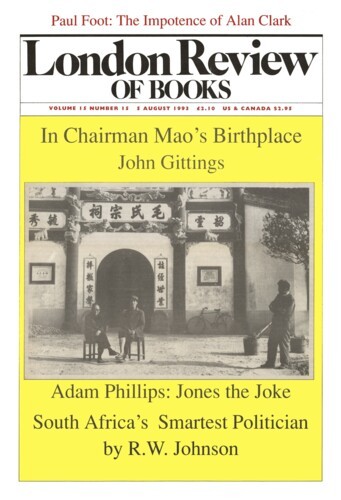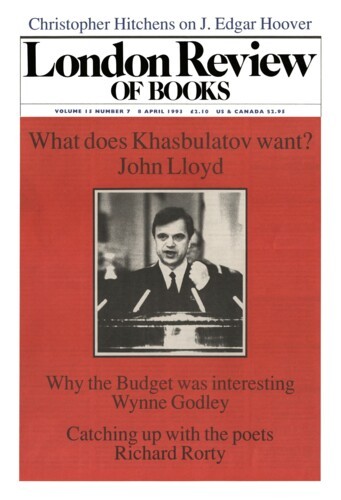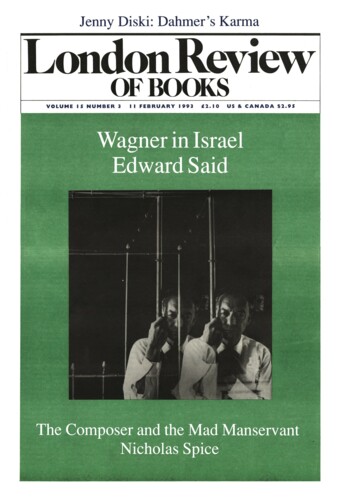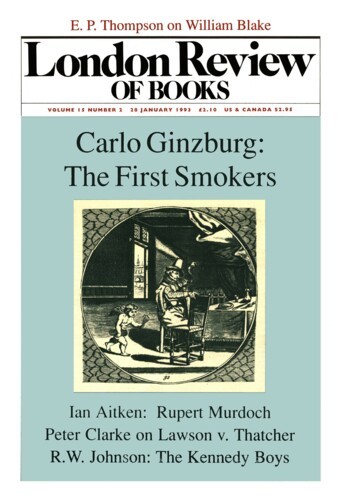Flying the flag
Patrick Parrinder, 18 November 1993
Cheered on by the Tory faithful, John Major recently dismissed as ‘claptrap’ a letter signed by 500 university teachers of English attacking the proposed revisions to the National Curriculum. The academics were accused – falsely, I believe – of wanting to undermine the teaching of Shakespeare. A few months earlier, the Education Secretary John Patten sent back an official report on English in schools with the comment that 15-year-olds perhaps ought to be made to study the ‘great tradition of the novel’. There have been solemn consultations about this with educational experts, and it remains to be seen whether Mr Patten’s opinions will become part of a legally enforceable literary canon.’





